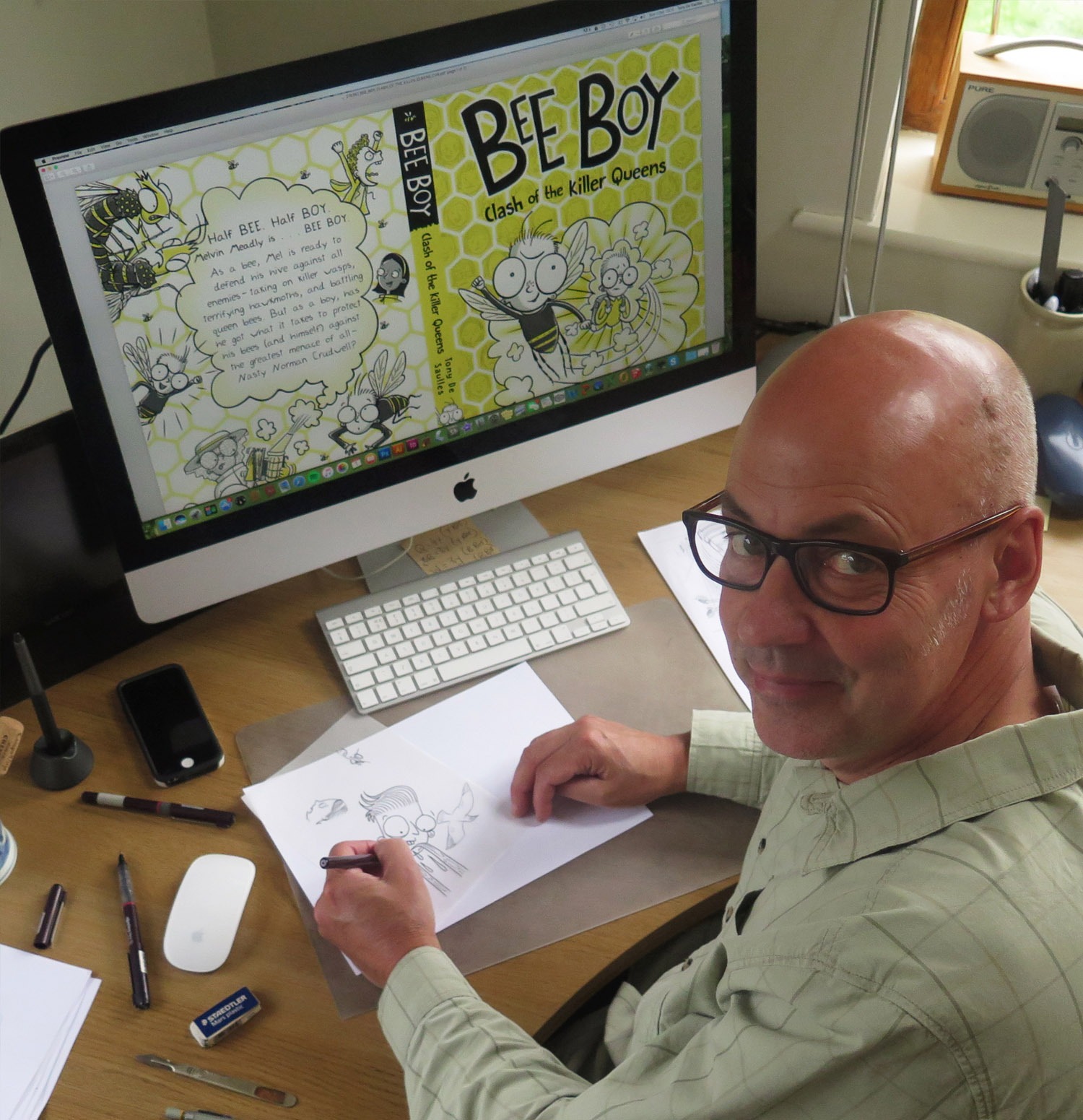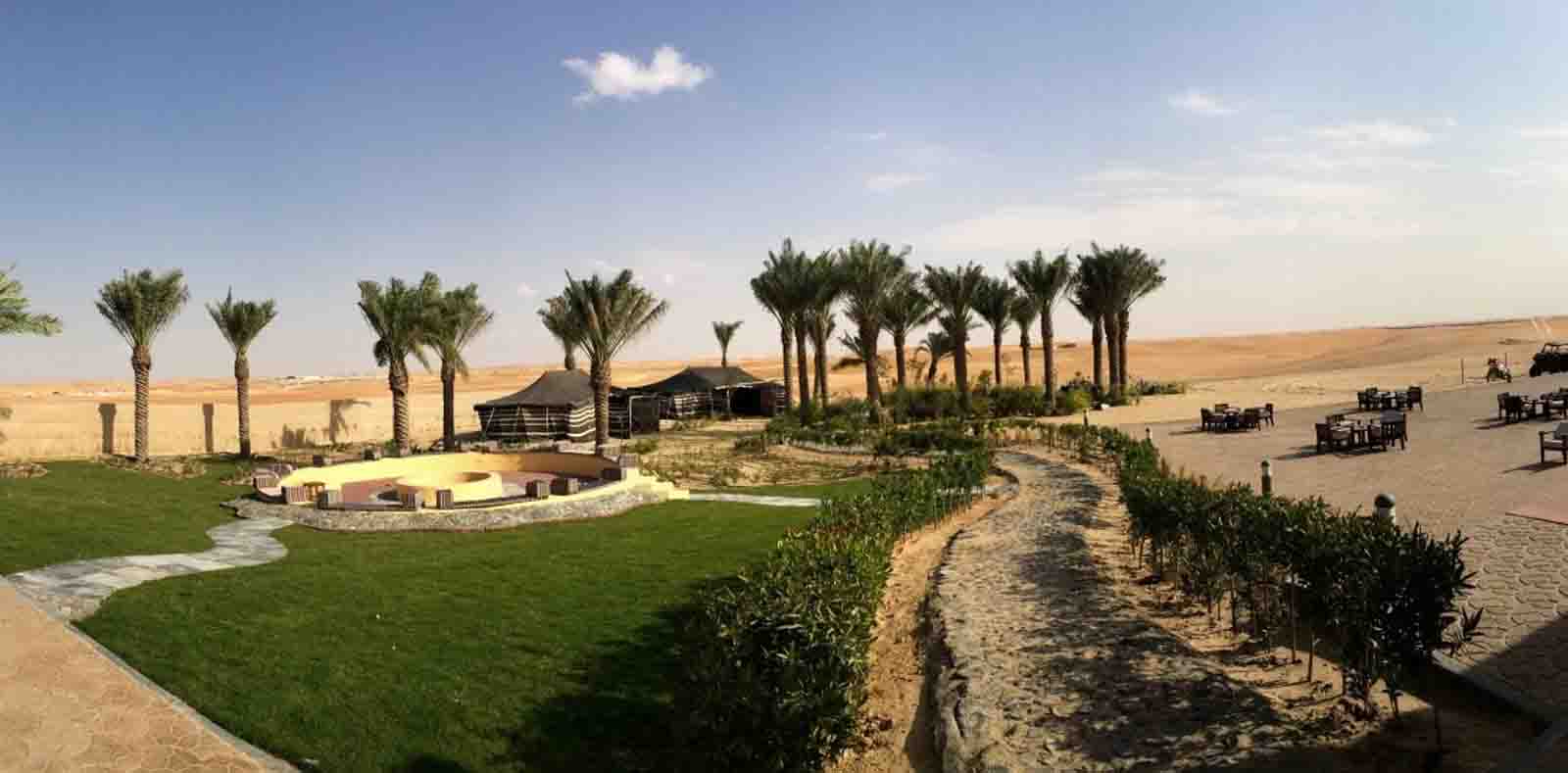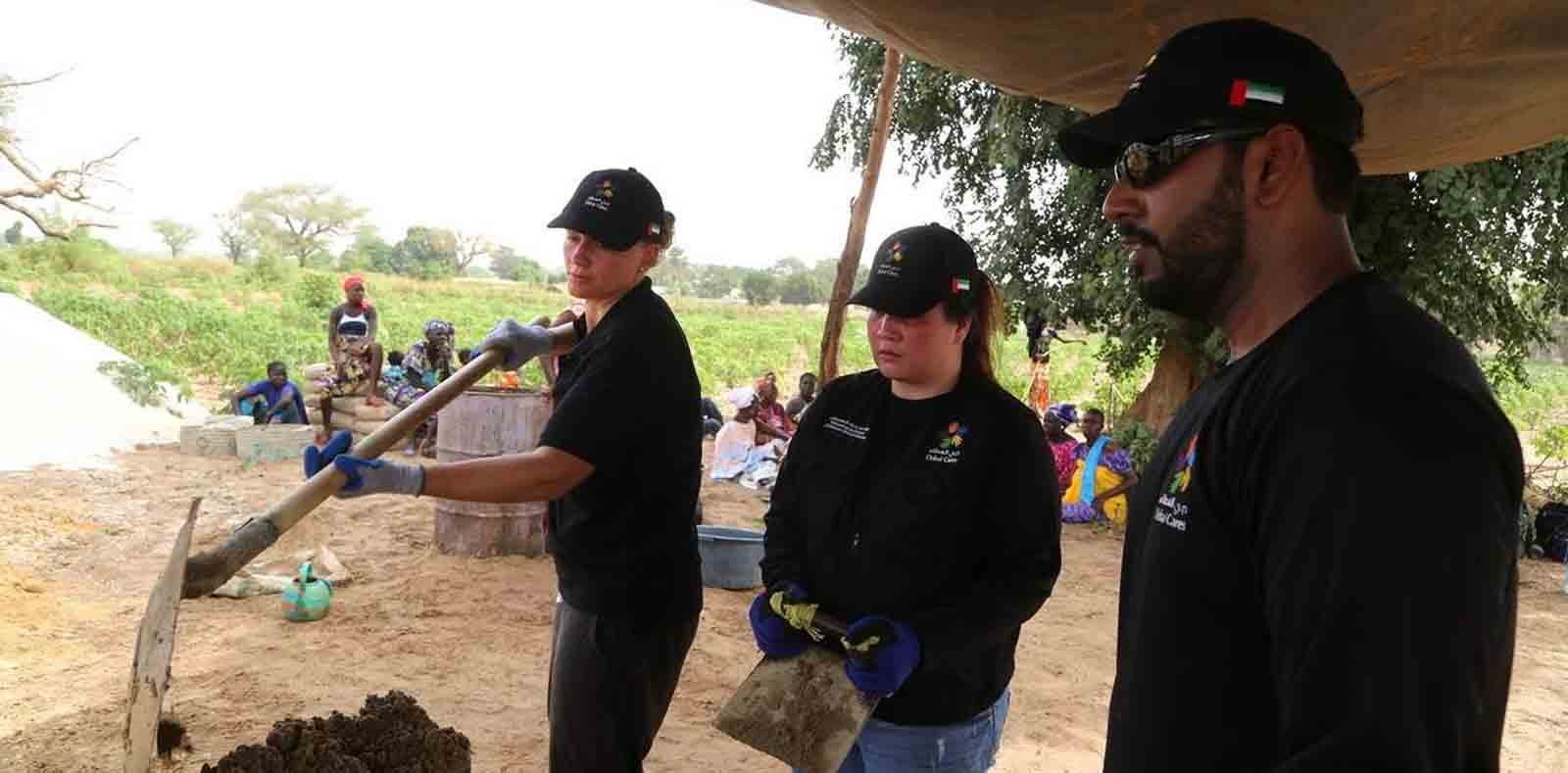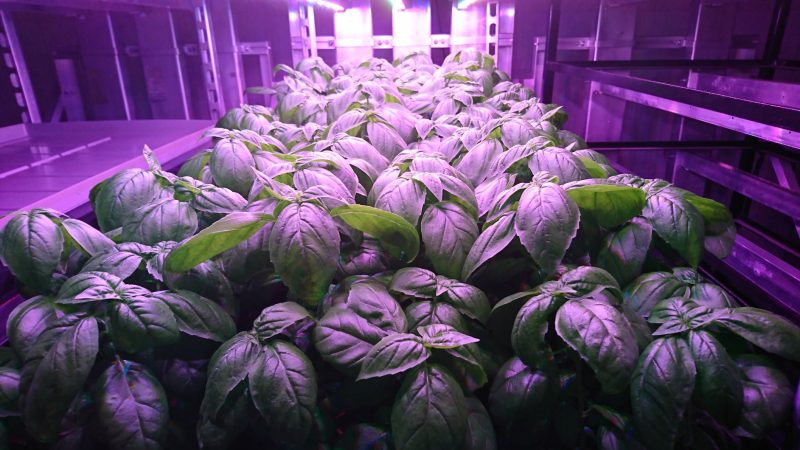TONY DE SAULLES: WHY DOES THE WORLD NEED BEES?
Interviews

January 27, 2019, 6:38 am
Q. What inspired the Bee Boy series?
A. Success with our first Horrible Science title, Ugly Bugs, published by Scholastic in 1996 was the start of 20 years of illustrating plants, mammals and insects for children’s books. So when it came to writing and illustrating my own series it is perhaps no surprise that I chose a bug-related theme. My Mum was a bee-keeper and I have always been interested in bees so I decided to develop a character that was half-bee, half-boy — Bee Boy was born!
Q. What do you think it is needed for people to be convinced that endangering the lives of bees has serious consequences on our entire ecosystem?
A. We should all be doing our bit to help keep Planet Earth healthy. Unfortunately, it is often only when a situation starts to cost people money that they sit up and notice. Many of our food crops depend on pollinating insects and honeybees are the master pollinators. Sadly, it might take a shortage of certain foods or a steep increase in food prices to show the world just how important bees are.
Q. What are the initiatives which you’ve noticed which are actually making a positive contribution to protecting the bees?
A. In my region of the world, the most important recent initiative that should start to show an improvement in the health of bees is the recent neonicotinoid pesticide ban in Europe. Farmers use neonicotinoids to kill pests that damage their crops but many scientists say the chemicals are also harmful to bees and other valuable insects. It is believed that neonicotinoids spread through the soil and run into river eco systems resulting in harm to insects, birds and fish. Nature is desperate to thrive when given a chance. We see this when set aside land that farmers keep free from the plough and pesticides, soon becomes populated with wild flowers, insects and birds.
Q. What superpower do you believe humans need in order to protect the environment?
A. I guess having a superpowered-brain, clever enough to find a way of feeding the world without destroying important wildlife habitats, would be a good start. But kindness, compassion and empathy for the plight of Mother Nature are also important and these aren’t superpowers — they are qualities that each and every one of us has and we can use them to help the environment.
Q. How do children respond to the idea of protecting the bees?
A. I have talked about bees and Bee Boy in many schools, libraries, and book festivals over the past year and I have been absolutely delighted with the interest and enthusiasm children have shown. In the Q&A sessions at the end of my workshops the children have asked interesting and thoughtful questions about bees and bee protection. This leaves me with no doubt that they were paying close attention and enjoying learning about bees and the problems these precious insects face.
Q. If you were to write about any other topic related to sustainability or protecting the environment, what would that be and why?
A. I am currently reading a book called Wilding. It’s all about the Knepp project in West Sussex, close to where I live. At Knepp Farm they have allowed the land to resort back to how it was before intensive farming took over. Nature has made a strong comeback with many rare plants, insects and birds appearing as long lost eco systems are revived. My friend and bee-keeping neighbour has started a similar project with some of the land on her farm and we watch with interest, noting the new birds, plants and insects that visit. I think children might be interested to read about the nature that appears when land is given a chance — even if it’s just planting a few wild flowers and building a bug hotel at the bottom of the garden.
About the author:
Tony De Saulles, the terrifyingly talented illustrator of the Horrible Science series welcomes you to an illustrated peak into the weird and wonderful world of Bee Boy!
How do you make serious subjects fun and memorable? Discover the answers with Tony as he tells us his motivation for writing the Bee Boy trilogy and why bees matter so much. Enjoy a brilliant presentation, and even a song or two if we persuade Tony to bring his guitar!
Tony De Saulles used to get told off at school for doodling, now he is paid to do it!
His will hold a session at the Emirates Literature Festival on Friday 1 March 2019, between 12-1 pm, in English.
Click here to book your seats now.










